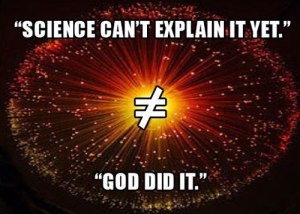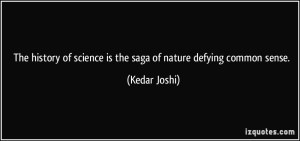 Scientists could never discover that free will does not exist via scientific experimentation, because in a deterministic world, the result of the experiment would, itself, be determined. The conclusion that there is no such thing as free will would not be arrived at because the scientists chose to set up the experiment in a good way and reasoned correctly about the data they received. Instead, physics would determine both the study’s structure and conclusions. As such, the conclusion cannot be trusted.
Scientists could never discover that free will does not exist via scientific experimentation, because in a deterministic world, the result of the experiment would, itself, be determined. The conclusion that there is no such thing as free will would not be arrived at because the scientists chose to set up the experiment in a good way and reasoned correctly about the data they received. Instead, physics would determine both the study’s structure and conclusions. As such, the conclusion cannot be trusted.
Even if determinism is true, this truth would not be “discovered” by the experiment, but “determined.” Discovery requires the exercise of free will. That’s why all such experiments are self-defeating. They can only be informative if free will exists. And if the will must be free for the experiments to be informative, there is no point in doing the experiment. You already know the answer before you begin: free will exists.
 We tend to trust the experts. The impulse is right because the experts have more knowledge and expertise in the subject than we do. They know the nuances. But when the experts claim to be above critique by non-experts, that’s a problem. When they say (in so many words) “you can’t evaluate my claims because I am the smart one and you are the dummy,” they are presenting an empty appeal to authority. The experts often differ among themselves, so we have reason to question the experts. After all, they can’t all be right. The only way to determine who is right is to question the experts.
We tend to trust the experts. The impulse is right because the experts have more knowledge and expertise in the subject than we do. They know the nuances. But when the experts claim to be above critique by non-experts, that’s a problem. When they say (in so many words) “you can’t evaluate my claims because I am the smart one and you are the dummy,” they are presenting an empty appeal to authority. The experts often differ among themselves, so we have reason to question the experts. After all, they can’t all be right. The only way to determine who is right is to question the experts. Greg Koukl delivered a lecture at the 2006 Master’s Series in Christian Thought on the topic, “Truth is a Strange Sort of Fiction: The Challenge from the Emergent Church.” While the Emergent Church has morphed into the Progressive Church, the information is just as relevant today as it was in 2006.
Greg Koukl delivered a lecture at the 2006 Master’s Series in Christian Thought on the topic, “Truth is a Strange Sort of Fiction: The Challenge from the Emergent Church.” While the Emergent Church has morphed into the Progressive Church, the information is just as relevant today as it was in 2006. If God is omniscient, then He knows everything that will happen in the future – including everything you will ever do. God knows that on x date at time t1 you will stub your toe, and on q date at time t5 you will forget where you placed your keys. God has had such knowledge from eternity past. Since God cannot be mistaken, it is certain that you will stub your toe on x date at time t1 and forget your keys on q date at time t5. How, then, can our “choices” be free? Does God’s knowledge of the future eliminate free will, reducing us to mere actors who simply perform the parts of a cosmic play written for us by God from eternity past? Are we puppets with no control over our own destiny? Is our experience of free choice illusory? Darwinist, Robert Eberle, sums up the problem nicely:
If God is omniscient, then He knows everything that will happen in the future – including everything you will ever do. God knows that on x date at time t1 you will stub your toe, and on q date at time t5 you will forget where you placed your keys. God has had such knowledge from eternity past. Since God cannot be mistaken, it is certain that you will stub your toe on x date at time t1 and forget your keys on q date at time t5. How, then, can our “choices” be free? Does God’s knowledge of the future eliminate free will, reducing us to mere actors who simply perform the parts of a cosmic play written for us by God from eternity past? Are we puppets with no control over our own destiny? Is our experience of free choice illusory? Darwinist, Robert Eberle, sums up the problem nicely: When Christians offer arguments for the existence of God based on the beginning of the universe or the objective nature of morality, some atheists will respond by asking, “Why can’t we just say we don’t know what caused the universe or what the objective source of morality is?” How might a thoughtful Christian respond?
When Christians offer arguments for the existence of God based on the beginning of the universe or the objective nature of morality, some atheists will respond by asking, “Why can’t we just say we don’t know what caused the universe or what the objective source of morality is?” How might a thoughtful Christian respond?









